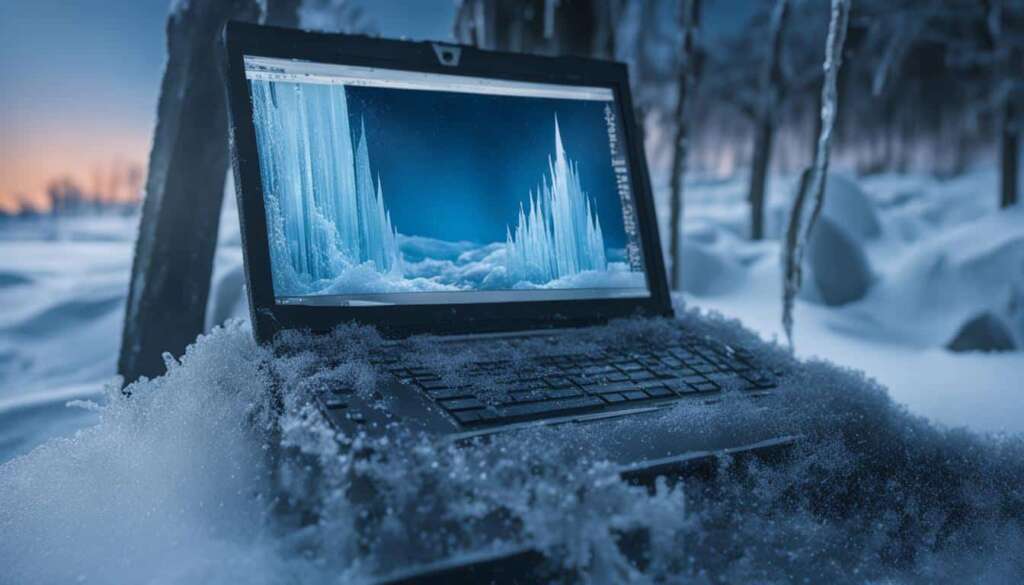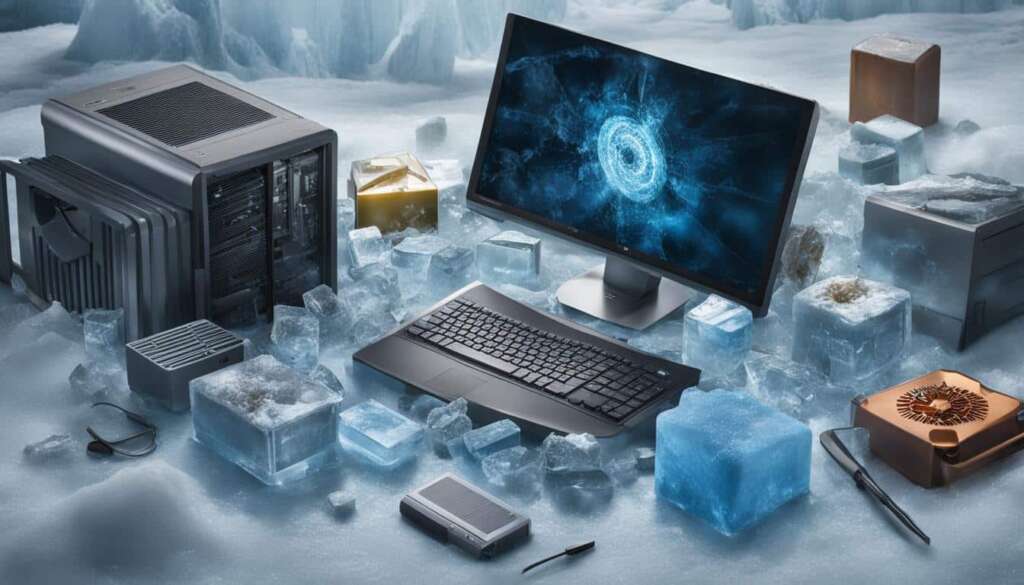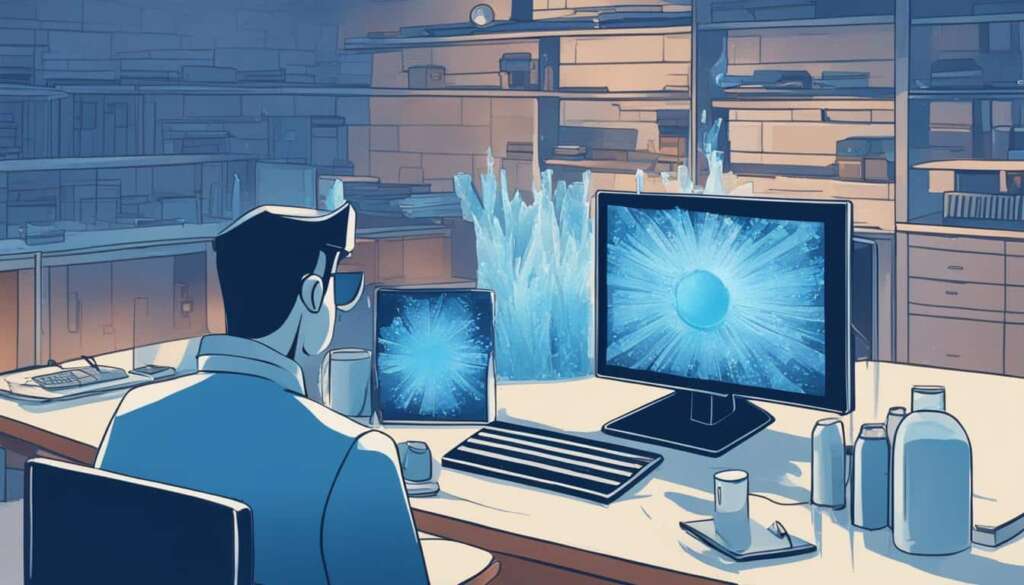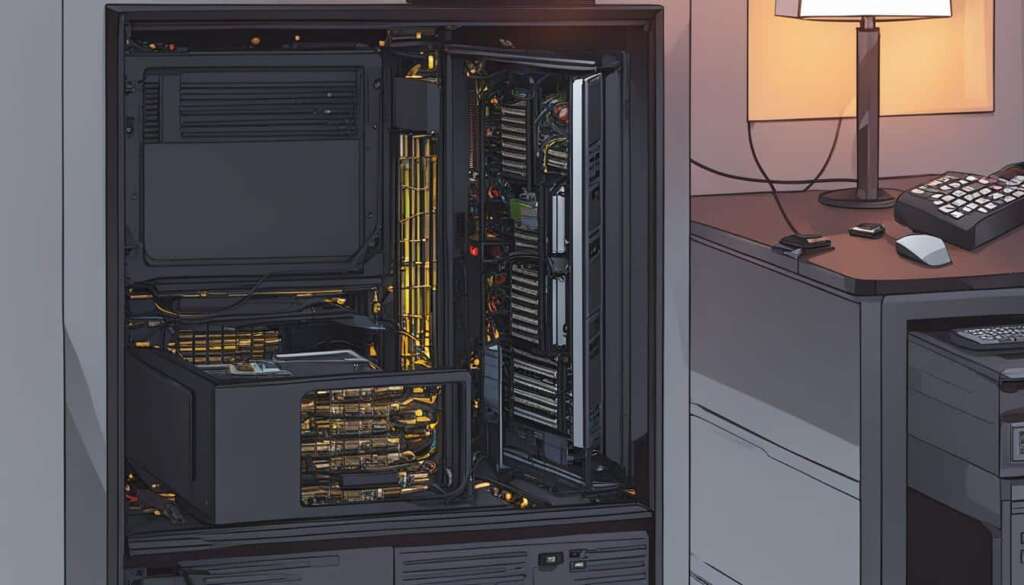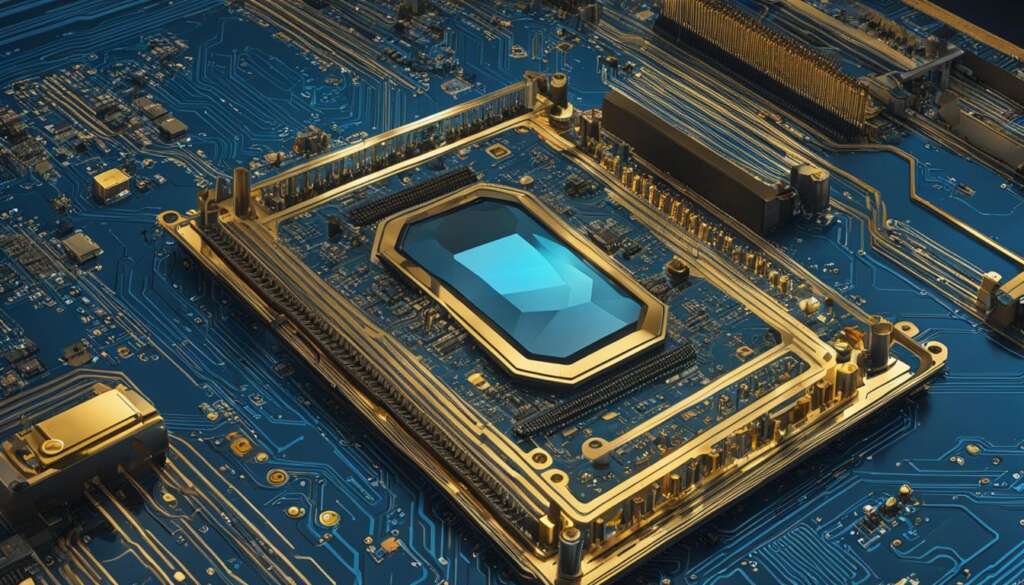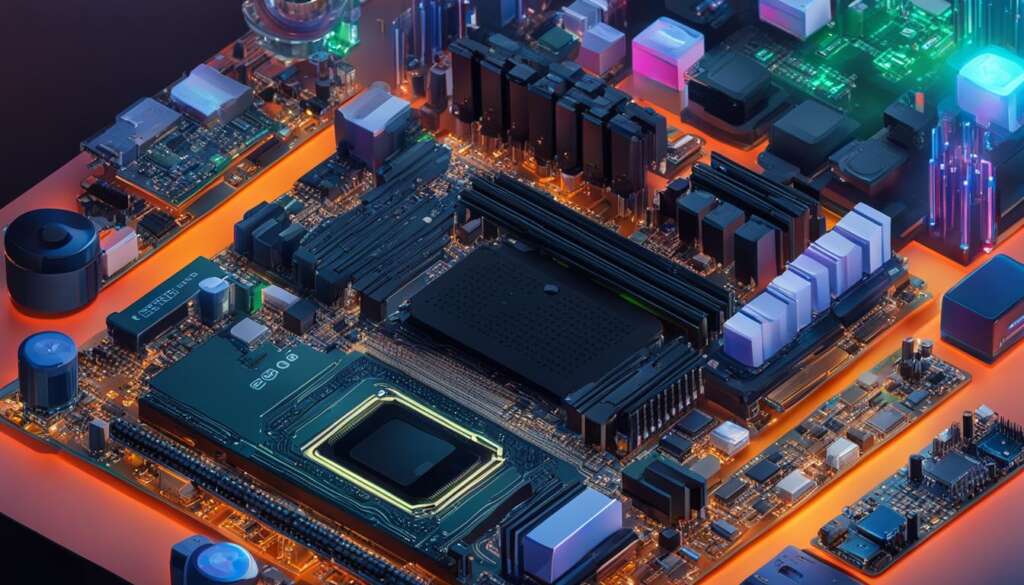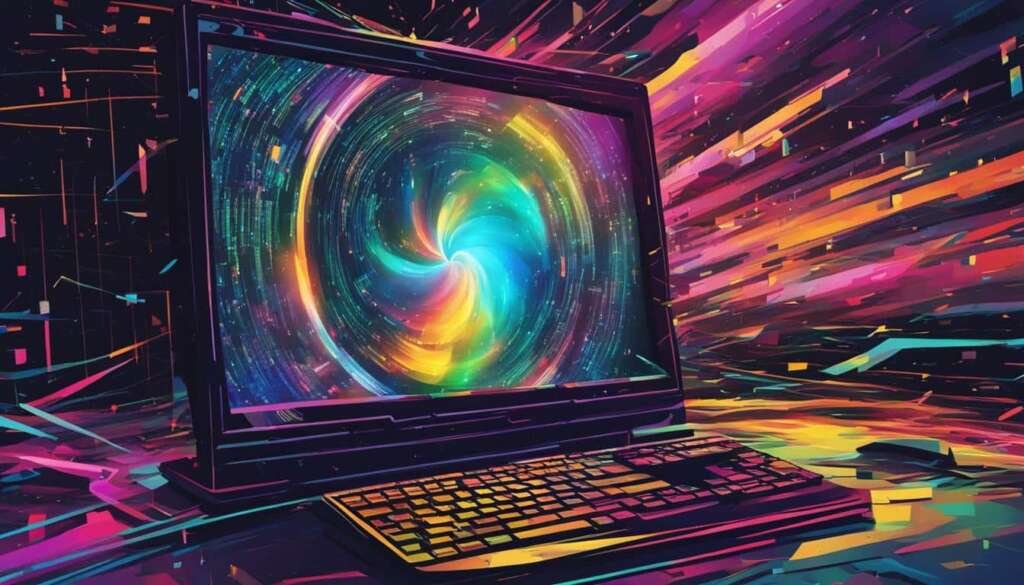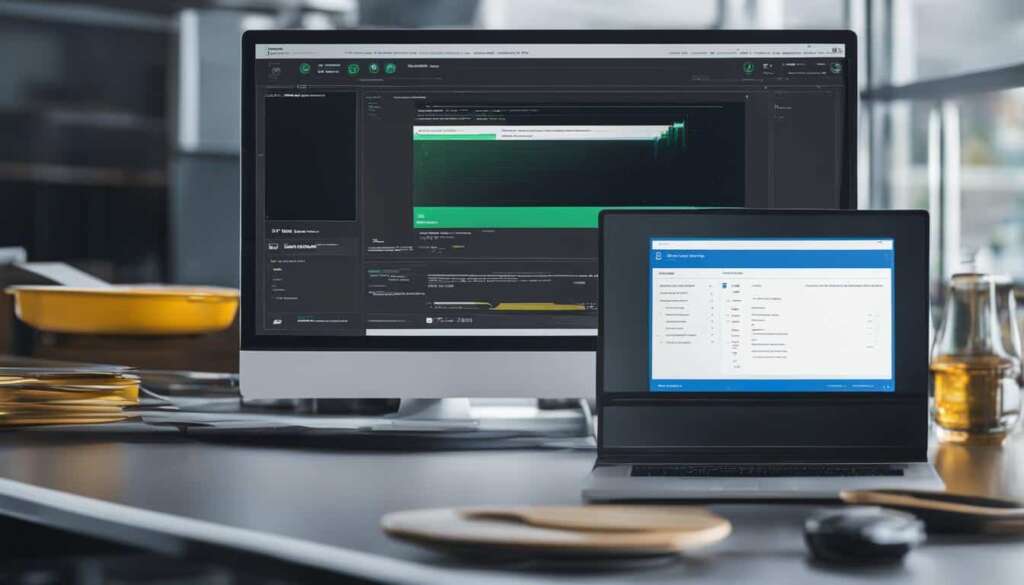Table of Contents
Many users experience the frustrating issue of their computer freezing randomly, causing disruption to their work and overall computer performance. There can be multiple reasons behind this problem, including too many programs opening simultaneously, driver corruption or errors, overheating, insufficient RAM, incorrect BIOS settings, faulty external devices, computer viruses, corrupted or missing system files, low disk space, and software errors. Understanding the root cause is crucial to finding effective solutions and preventing further freezing issues.
Key Takeaways
- Computer freezing can be caused by various factors, such as too many programs running at once, driver issues, overheating, and more.
- Identifying the root cause of computer freezing is essential for troubleshooting and finding the appropriate solutions.
- Closing unnecessary background applications, updating device drivers, and managing power settings can help resolve freezing problems.
- Regularly cleaning up disk space, keeping drivers and software up to date, and practicing safe browsing habits can prevent future freezing issues.
- By following preventive measures and implementing solutions, users can minimize computer freezing and enjoy a smoother computing experience.
10 Common Causes of Computer Freezing
Computer freezing can be a frustrating experience that disrupts productivity and hinders the overall performance of your system. Understanding the common causes of computer freezing is essential in troubleshooting and finding effective solutions. Here are 10 common causes of computer freezing:
- Too many programs opening simultaneously: Running multiple programs simultaneously can overwhelm your system’s resources, leading to freezing issues.
- Driver corruption or errors: Outdated or faulty drivers can cause conflicts and instability, resulting in computer freezing.
- Overheating: When your computer’s components reach excessive temperatures, it can lead to freezing as a protective measure.
- Insufficient RAM: If your computer doesn’t have enough memory to handle the tasks you’re performing, it may freeze.
- Incorrect BIOS settings: Misconfigured BIOS settings can cause compatibility issues between hardware and software, resulting in freezing.
- Faulty external devices: A malfunctioning external device, such as a USB drive or printer, can cause freezing when connected to your computer.
- Computer viruses: Malware and viruses can disrupt system processes, leading to freezing and other performance issues.
- Corrupted or missing system files: Damage or loss of critical system files can cause freezing and instability.
- Low disk space: When your hard drive is almost full, it can affect your system’s performance and lead to freezing.
- Software errors: Bugs, glitches, and compatibility issues within software applications can result in freezing.
Identifying which of these causes may be contributing to your computer freezing can help you take the necessary steps to resolve the issue and prevent further disruptions.
Table: Comparison of Common Causes of Computer Freezing
| Cause | Symptoms | Solutions |
|---|---|---|
| Too many programs opening simultaneously | Slow system performance, unresponsive applications | Close unnecessary programs, optimize startup |
| Driver corruption or errors | Device malfunctions, system crashes | Update drivers, reinstall or roll back problematic drivers |
| Overheating | Sudden system shutdowns, loud fan noise | Clean dust from fans, improve ventilation, use cooling pads |
| Insufficient RAM | Slow performance, frequent crashes | Upgrade RAM, close unnecessary processes |
| Incorrect BIOS settings | System instability, hardware conflicts | Reset BIOS to default settings, update BIOS if necessary |
| Faulty external devices | Device malfunctions, system freezes when device is connected | Disconnect or replace faulty devices, update drivers |
| Computer viruses | Unusual system behavior, frequent crashes | Scan for malware, use antivirus software to remove infections |
| Corrupted or missing system files | System errors, frequent crashes | Run system file checker, repair or reinstall affected files |
| Low disk space | Slow system performance, inability to save files | Clean up disk space, remove unnecessary files |
| Software errors | Application crashes, system instability | Update software, reinstall problematic applications |
Solutions to Fix Computer Freezing Issues
If you’re facing the frustrating problem of a freezing computer, there are several solutions to help you troubleshoot and resolve the issue. By implementing these solutions, you can improve the overall performance of your computer and prevent further freezing problems.
One of the first steps you can take is to close unnecessary background applications. When too many programs are running simultaneously, it can overload your system’s resources and lead to freezing. By closing these applications, you free up memory and processing power, allowing your computer to run more smoothly.
Updating device drivers is another crucial solution. Outdated or corrupt drivers can cause compatibility issues and instability, resulting in a freezing computer. By regularly updating your drivers, you ensure that they are compatible with your operating system and improve the stability of your system.
Another important solution is to manage your power settings. Sometimes, certain power settings can cause your computer to freeze. By adjusting these settings, you can prevent system freezes and enhance the overall performance of your computer.
| Solution | Description |
|---|---|
| Close unnecessary background applications | Free up system resources by closing programs that are running in the background simultaneously. |
| Update device drivers | Keep your drivers up to date to ensure compatibility and stability. |
| Manage power settings | Adjust power settings to prevent system freezes and improve overall performance. |
| Check hard disk for malfunctions | Scan your hard disk for errors and malfunctions that may be causing freezing issues. |
Checking your hard disk for malfunctions is also recommended. Corrupted or failing hard drives can lead to freezing problems. By scanning your hard disk for errors and repairing them, you can resolve these issues and prevent further freezing.
Disabling fast startup options and clearing temporary files are additional solutions that can help fix freezing problems. Fast startup options can sometimes conflict with other processes and cause freezes, while temporary files can accumulate and take up valuable disk space. By disabling fast startup and clearing temporary files, you can improve system performance and prevent freezing.
If all else fails, you can try running the System File Checker (SFC) utility. This tool scans your system for corrupted or missing system files and repairs them. It can help resolve freezing problems caused by file errors.
By implementing these solutions and troubleshooting steps, you can effectively fix computer freezing issues and improve the overall performance of your system.
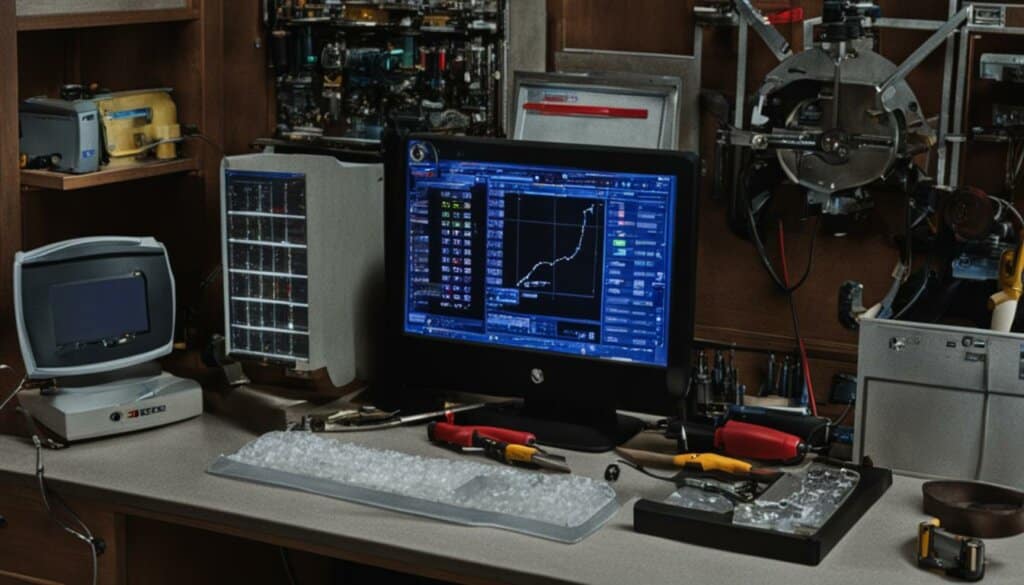
Preventive Measures to Avoid Computer Freezing
Preventing computer freezing is essential for maintaining optimal performance and avoiding frustrating interruptions. By taking proactive steps and implementing effective preventive measures, users can minimize the occurrence of freezing issues and ensure a smoother computing experience.
Maintain Sufficient Disk Space
One of the primary causes of computer freezing is low disk space. When the hard drive is full, the system may struggle to allocate resources efficiently, resulting in freezing or slow performance. Regularly clean up disk space by removing unnecessary files, temporary data, and large unused applications. This will not only prevent freezing but also improve overall system speed and responsiveness.
Keep Device Drivers Up to Date
Outdated or incompatible device drivers can lead to system issues, including freezing. It is crucial to regularly update drivers to ensure compatibility, stability, and optimal performance. Visit the manufacturer’s website or use driver update software to check for the latest versions and install them accordingly.
Ensure Proper Ventilation and Cooling
Overheating is another common cause of computer freezing. Ensure that your computer has proper ventilation and cooling. Use a cooling pad or elevate the laptop to allow for better airflow. Clean dust and debris from the cooling fans regularly to prevent them from becoming clogged and causing the system to overheat.
Practice Safe Browsing Habits
Malware and viruses can significantly impact computer performance and lead to freezing issues. Practice safe browsing habits by avoiding suspicious websites, refraining from downloading files from untrustworthy sources, and using reliable antivirus software. Regularly scan your computer for threats and keep the antivirus software up to date.
Regularly Update System and Software
Keeping your operating system and software up to date is crucial for maintaining stability and security. Updates often include bug fixes, performance enhancements, and security patches that can prevent freezing issues. Enable automatic updates or regularly check for updates manually to ensure your system and software are running the latest versions.
Summary
Preventing computer freezing requires regular maintenance and proactive measures. By maintaining sufficient disk space, keeping device drivers up to date, ensuring proper ventilation and cooling, practicing safe browsing habits, and regularly updating the system and software, users can minimize freezing issues and enjoy a smoother, more reliable computing experience.
Conclusion
Computer freezing problems can be incredibly frustrating, causing disruptions to productivity and overall computer performance. However, by understanding the common causes of freezing and implementing the appropriate solutions, users can effectively troubleshoot and resolve the issue. Taking preventive measures is also essential in avoiding future freezing problems and maintaining a smooth computing experience.
Regular maintenance, such as cleaning up disk space and updating drivers and software, plays a significant role in preventing computer freezing. By keeping the system and software up to date with the latest updates and patches, users can ensure compatibility and stability. Additionally, practicing safe browsing habits, regularly scanning for threats, and backing up data can prevent data loss and protect against malware and viruses.
By following these steps, users can minimize computer freezing problems and enjoy a more reliable and efficient computer performance. Troubleshooting freezing issues and implementing preventive measures are key to maintaining a smooth computing experience. Remember, prevention is always better than cure, so take the necessary steps to prevent computer freezing and enjoy a hassle-free computing journey.
FAQ
Why does my computer keep freezing?
There can be multiple reasons behind this problem, including too many programs opening simultaneously, driver corruption or errors, overheating, insufficient RAM, incorrect BIOS settings, faulty external devices, computer viruses, corrupted or missing system files, low disk space, and software errors.
What are the common causes of computer freezing?
The 10 most common causes of computer freezing include: too many programs opening simultaneously, driver corruption or errors, overheating, insufficient RAM, incorrect BIOS settings, faulty external devices, computer viruses, corrupted or missing system files, low disk space, and software errors.
How can I fix computer freezing issues?
There are several solutions to fix computer freezing issues, including closing unnecessary background applications, updating device drivers, managing power settings, checking the hard disk for malfunctions, disabling fast startup options, running system file checker, clearing temporary files, and performing a system restore as a last resort.
What preventive measures can I take to avoid computer freezing?
Preventive measures to avoid computer freezing include regularly cleaning up disk space, keeping device drivers up to date, using a cooling pad or ensuring proper ventilation, practicing safe browsing habits, regularly scanning the computer for threats, backing up data, and keeping the system and software up to date with the latest updates and patches.

